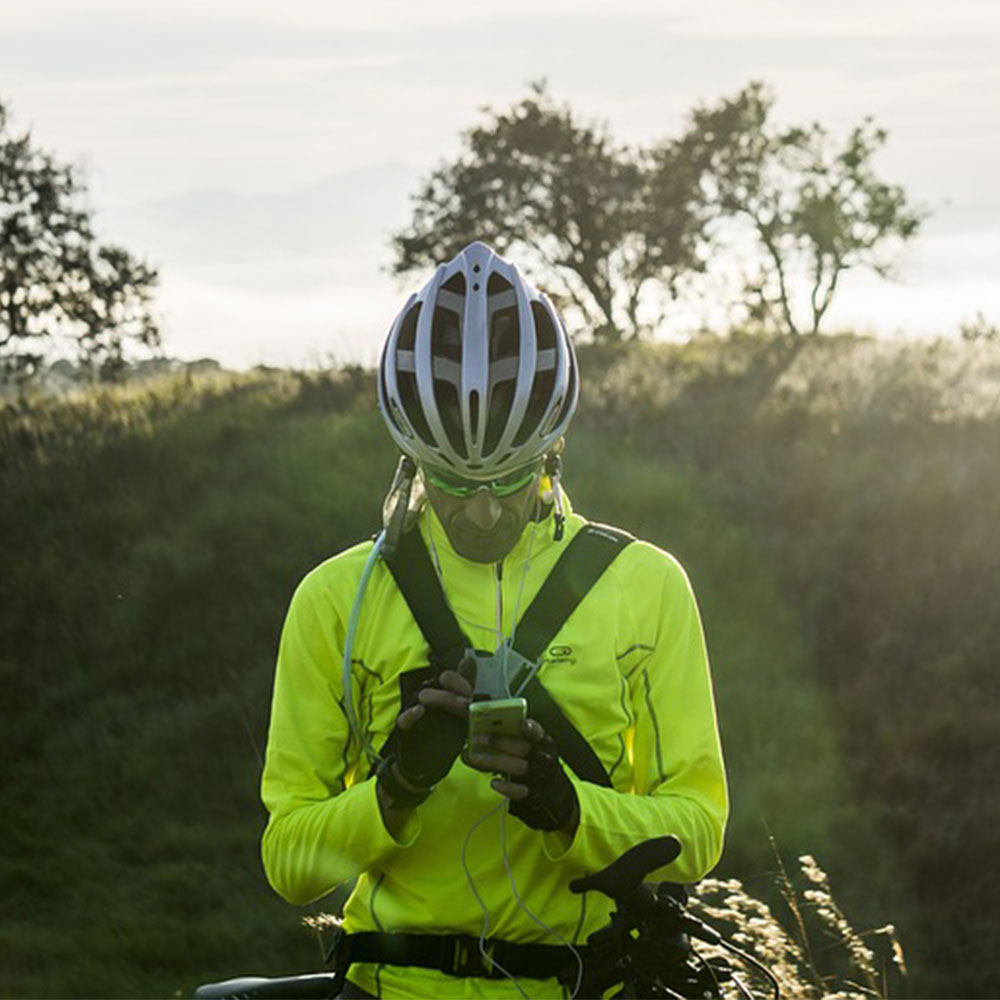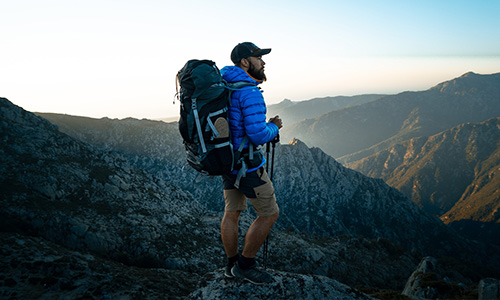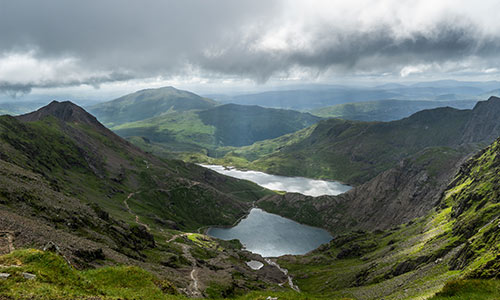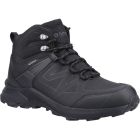Speed Up Your Post-Hike Recovery with These 6 Essential Tips
Author

Chris shares his passion for cycling, hiking, skiing, and climbing from Buxton, in the Peak District. As a blogger for Outdoor Look, Chris shares outdoor tips and indoor tricks to help you get the most out of your time spent outside. When he's not out adventuring he's making videos or trying to keep up with his 4-year-old son.
Trekking in breathtaking natural settings provides a physical challenge as well as mental renewal. But an exhausting walk can leave your muscles sore and your energy level low. Use these six suggestions for a quicker recovery to help you heal more quickly and get ready for your next journey.
1. Drink Plenty of Water
Your greatest ally before, during, and after a walk is water. Dehydration can aggravate discomfort in the muscles and hinder the healing process. Your body loses fluids through perspiration when hiking, therefore it's important to replace them. After your walk, try to complete drinking at least half a litre of water in 30 minutes. Think about using electrolytes in your water to replenish lost minerals and promote quicker recovery.
2. Refuel with Foods High in Nutrients
Your body requires nutrition to rebuild muscles and refuel after an intense walk. Choose a well-balanced lunch that is high in fibre, protein, and good fats. Protein helps mend muscles, lipids give you long-lasting energy, and carbohydrates help replenish glycogen stores. Lean meats, whole grains, fruits, veggies, nuts, and seeds are a few excellent post-hike foods. A smoothie with a mix of fruits, greens, and protein powder is also a convenient and nutritious option.

3. Stretch and Cool Down
Muscle soreness and stiffness can be considerably reduced with a suitable cool-down regimen. Stretch your entire body for ten to fifteen minutes, paying special attention to the muscles that will be used the most throughout your hike—your calves, hamstrings, quadriceps, and hips. Easy yoga poses have additional advantages. Breathing techniques can improve circulation and relaxation, which will speed up your body's healing process.
4. Use Ice Packs or Have a Cold Bath
For the purpose of lowering inflammation and easing muscle stiffness, cold therapy can be quite beneficial. Applying ice packs or having a cold bath for 15 to 20 minutes will help constrict blood vessels, which will lessen swelling and dull pain. To encourage blood flow and hasten healing, try switching between hot and cold showers if taking a full cold bath seems too intimidating.
5. Get Enough Sleep and Rest
In order for your muscles to heal and get stronger, you need to rest. Make sure you sleep well the night after your hike—at least 7 to 9 hours. Growth hormone is produced with the aid of a restful night's sleep and is essential for muscle repair. Try to get some quick naps.

6. Use Recovery Tools
Purchase some recuperation equipment to facilitate relaxation and muscle healing. Compression gear, massage sticks, and foam rollers are all quite effective. Compression garments or socks can assist reduce swelling and promote a quicker recovery, while foam rolling can help soothe tense muscles and enhance blood flow. A professional massage might also be quite helpful if you have access to a massage therapist.
Conclusion
It doesn't have to hurt and take a long time to recover from an intense walk. You can accelerate your healing process and return to the trails with greater strength and energy by drinking plenty of water, eating foods high in nutrients, stretching, applying cold therapy, getting enough sleep, and using recovery tools. Recall that caring for your body after a walk is just as important.
-
 Cotswold Mens Horton Lightweight Waterproof Walking Boots£61.24RRP £79.99 Save Up To £18.75
Cotswold Mens Horton Lightweight Waterproof Walking Boots£61.24RRP £79.99 Save Up To £18.75
Author

Chris shares his passion for cycling, hiking, skiing, and climbing from Buxton, in the Peak District. As a blogger for Outdoor Look, Chris shares outdoor tips and indoor tricks to help you get the most out of your time spent outside. When he's not out adventuring he's making videos or trying to keep up with his 4-year-old son.
- Cycling through Tranquil Roads and Coastal Views on the Isle of Wight
- The Essential Guide to Hiking Safety: 5 Tips Every Hiker Should Know
- Run Smart, Run Strong: Your Guide to Injury-Free Running
- Embrace Biking: Essential Tips for Beginners
- The Ultimate Guide to Gravel Biking: Exploring the Roads Less Travelled
Categories
- Sport (28)
- Product Reviews (3)
- Team Outdoor Look (7)
- Mike Wild (2)
- Mike Payton (2)
- Suse Hammond-Pears (3)
- Snowboarding (12)
- Latest Offers (105)
- Shop Talk (1)
- Competitions (7)
- Walking (413)
- Lifestyle Fashion (8)
- Travel (86)
- Kit Guides (176)
- Workwear Clothing (6)
- Safety Workwear (4)
- Health/Fitness (289)
- Skiing (91)
- Great Outdoors (1316)
- Cycling (92)
- January 2025
- December 2024
- November 2024
- October 2024
- September 2024
- August 2024
- July 2024
- June 2024
- May 2024
- April 2024
- March 2024
- February 2024
- January 2024
- December 2023
- November 2023
- October 2023
- September 2023
- August 2023
- July 2023
- June 2023
- May 2023
- April 2023
- March 2023
- February 2023
- January 2023
- December 2022
- November 2022
- October 2022
- September 2022
- August 2022
- July 2022
- June 2022
- May 2022
- April 2022
- March 2022
- February 2022
- January 2022
- December 2021
- November 2021
- October 2021
- September 2021
- August 2021
- July 2021
- June 2021
- May 2021
- April 2021
- March 2021
- February 2021
- January 2021
- December 2020
- November 2020
- October 2020
- September 2020
- August 2020
- July 2020
- June 2020
- May 2020
- April 2020
- March 2020
- February 2020
- January 2020
- December 2019
- November 2019
- October 2019
- September 2019
- August 2019
- July 2019
- June 2019
- May 2019
- April 2019
- March 2019
- February 2019
- January 2019
- December 2018
- November 2018
- October 2018
- September 2018
- August 2018
- July 2018
- June 2018
- May 2018
- April 2018
- March 2018
- February 2018
- January 2018
- December 2017
- November 2017
- October 2017
- September 2017
- August 2017
- July 2017
- June 2017
- May 2017
- April 2017
- March 2017
- February 2017
- January 2017
- December 2016
- November 2016
- October 2016
- September 2016
- August 2016
- July 2016
- June 2016
- May 2016
- April 2016
- March 2016
- February 2016
- January 2016
- December 2015
- November 2015
- October 2015
- September 2015
- August 2015
- July 2015
- June 2015
- May 2015
- April 2015
- March 2015
- February 2015
- January 2015
- December 2014
- November 2014
- October 2014
- September 2014
- August 2014
- July 2014
- June 2014
- May 2014
- April 2014
- March 2014
- February 2014
- January 2014
- December 2013
- November 2013
- October 2013
- September 2013
- August 2013
- July 2013
- June 2013
- May 2013
- April 2013
- March 2013
- February 2013
- January 2013
- December 2012
- November 2012
- October 2012
- September 2012
- August 2012
- July 2012
- June 2012
- May 2012
- April 2012
- March 2012
- February 2012
- January 2012
- December 2011
- November 2011
- October 2011
- September 2011
- August 2011
- May 2010
- April 2010
- March 2010
- February 2010
- January 2010
- November 2009
- October 2009
- September 2009


Submit a Comment